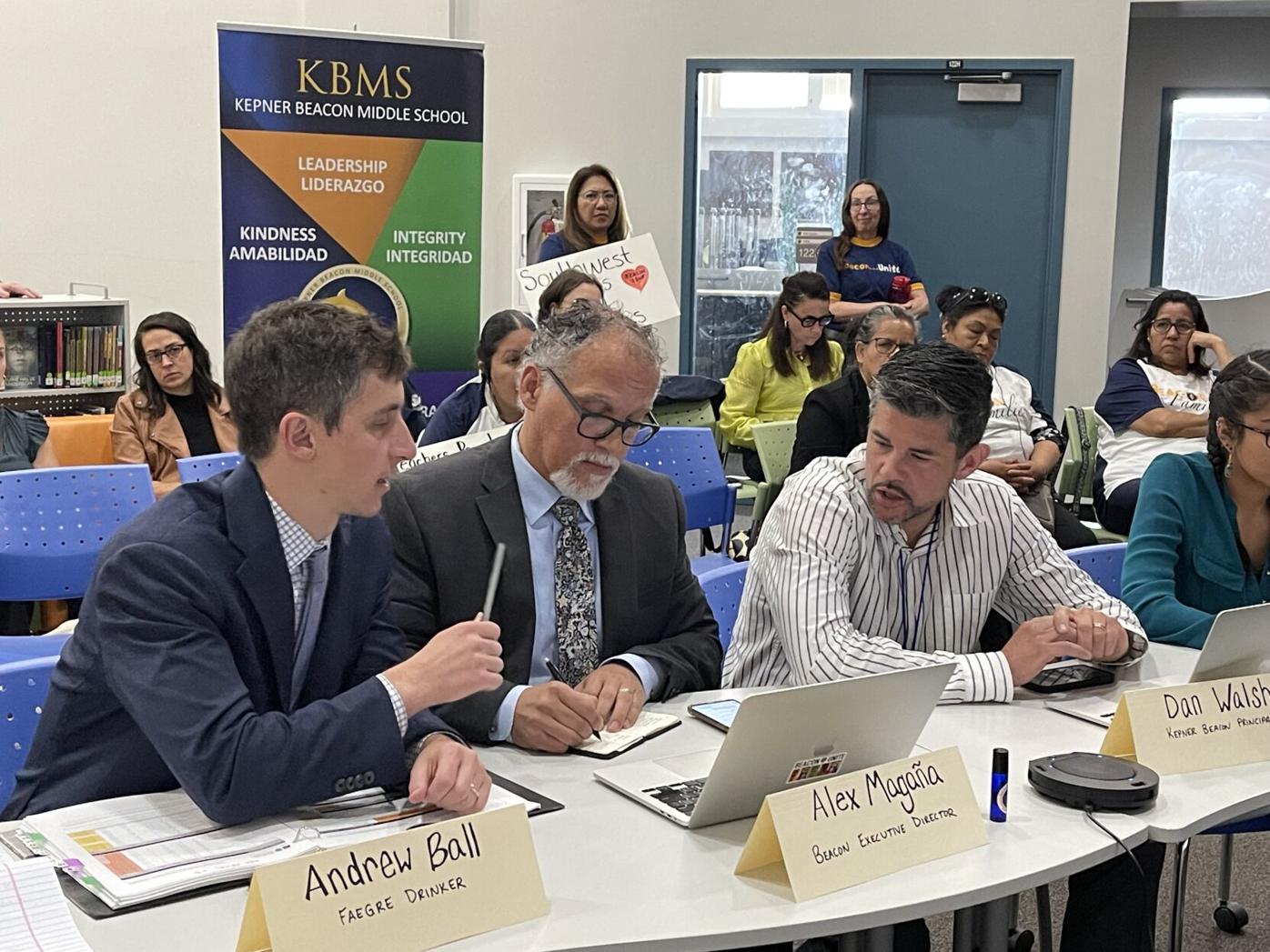State Board of Education rules Denver Public Schools should pause revoking school’s innovation zone status
The timing for revoking Denver’s Beacon Network Schools’ innovation zone status was off given students are just now beginning to emerge from the COVID-19 pandemic, according to a Colorado State Board of Education statement Friday.
State board members encouraged Denver Public Schools (DPS) to hold off on its revocation at least until the new state test scores are released in August, saying Beacon should “have more time before the innovation zone status with alternative governance is revoked.”
Beacon Network Schools Executive Director Alex Magaña, who also serves as executive principal, said he was pleased with the outcome.
“It’s a win for Beacon Network,” Magaña said.
Magaña added: “This is exactly what we were asking for.”
While state board members shared a similar sentiment on the timing, they disagreed on whether DPS could sustain the innovation model under its leadership.
Five of the nine state board members said Beacon had a strong model with “excellent staff and community support.” The remaining four members, had a different take.
Vice Chair Lisa Escárcega, who represents Denver, and members Kathy Plomer, Rhonda Solis, and Karla Esser, said the most critical aspect of the zone’s model — empowering teachers — could continue under the campus innovation plans of Kepner and Grant Beacon Middle Schools.
“These innovations can occur regardless of the zone’s governance structure,” the four-member’s statement read.
DPS Superintendent Alex Marrero, who recommended Beacon’s revocation to the Denver board, declined to comment Friday.
The state board members heard arguments from Beacon and DPS on June 15 in the first-of-its-kind appeal under a law passed by lawmakers last year.
The new law was designed to give innovation schools and innovation zones —or iZones comprised of multiple schools — recourse when disagreements with district decisions arise. Under provisions in the new law, which Marrero opposed, an innovation school or iZone may appeal to the state for review and comment.
The law does not permit the State Board of Education to override the local board, but it does require the DPS board to put the state decision on its next agenda for public discussion
DPS officials have maintained that poor academic performance and poor financial oversight led to the revocation in April.
The Beacon iZone was created in 2018 after DPS, under a former superintendent, requested Magaña, who was the principal of Grant Middle School, to replicate his program at Kepner.
The Innovation Schools Act of 2008 provides autonomy structures similar to charter schools, which enjoy advantages not available to traditional schools.
A public school can request innovation status from its local school board and groups of innovation schools may apply to become an “Innovation School Zone,” which operates under a separate governing board.
Excluding Beacon, DPS has two iZones and about 50 innovation schools.
DPS Board President Xóchitl Gaytán could not be immediately reached for comment.






